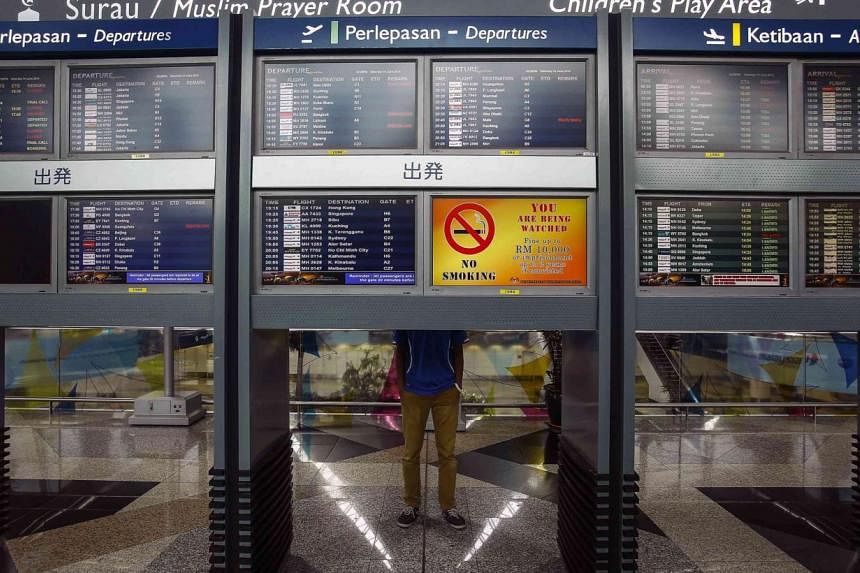PETALING JAYA (THE STAR/ASIA NEWS NETWORK) - All major entry points in Malaysia, including the Kuala Lumpur International Airport (KLIA), are under an Ebola virus alert as the World Health Organisation (WHO) scrambles to contain the outbreak in West Africa.
Health Minister Datuk Seri Dr S. Subramaniam said the Malaysian government was stepping up preparations to prevent the highly contagious disease from reaching Malaysia.
Clear instructions have been given to officers at the entry points on what to do to prevent transmissions from travellers.
"Preventive measures include identifying and handling passengers with symptoms, immediately alerting the ministry and referring cases to the nearest hospital. The National Crisis Preparedness and Response Centre must also be notified," he said on Sunday.
Similar steps to screen the health of passengers are being taken by airports and airlines around the world, in line with WHO and International Air Transport Association guidelines.
Emirates suspended flights to Guinea, the first international airlines to do so as a precautionary measure.
"The ministry has to work closely with all agencies at gateways such as the Immigration Department and all those screening passengers upon arrival in Malaysia," he said.
He said the Health Ministry was also working with the Foreign Ministry to channel information about Ebola to those intending to travel to these countries as well as to Malaysians already there.
"Similarly, the Education Ministry will also advise and screen students returning from these countries," he added.
Dr Subramaniam said these measures had started the moment the WHO announced there was an outbreak in Africa in March.
He said the Institute of Medical Research had labs that were able to detect Ebola and that all government hospitals had facilities to look after those infected
WHO has warned that the outbreak in Guinea, Sierra Leone and Liberia was moving faster than their efforts to control it.
Its director-general Dr Margaret Chan said the situation could be catastrophic to human life if the situation continued to deteriorate.
To date there have been 1,201 confirmed cases in the countries. More than 670 people have died from the disease since February.
Ebola is transmitted by direct contact with body fluids and tissues of those infected. It has a fatality rate of up to 90 per cent.
Symptoms include high fever, vomiting, diarrhoea, and kidney and liver failure.
Meanwhile, Bernama reports that the Health Ministry has set also up a Facebook account - 'Health Ministry's Crisis Preparedness and Response Centre' - to provide the latest information on disease outbreaks, including dengue fever and the Ebola virus.
Besides media reports and the ministry's press statements, it also has statements from WHO on the latest statistics on the Ebola outbreak in West African countries, influenza in China and cholera in Ghana.
Other information available includes programmes and activities such as the health screening, mental health screening and psychosocial response intervention for rescue personnel of Malaysia Airlines Flight MH17.
It also provides tips on preventing Aedes mosquitoes from breeding in residential areas, the latest reports on dengue cases nationwide and information on the situation pertaining to infectious diseases abroad.

